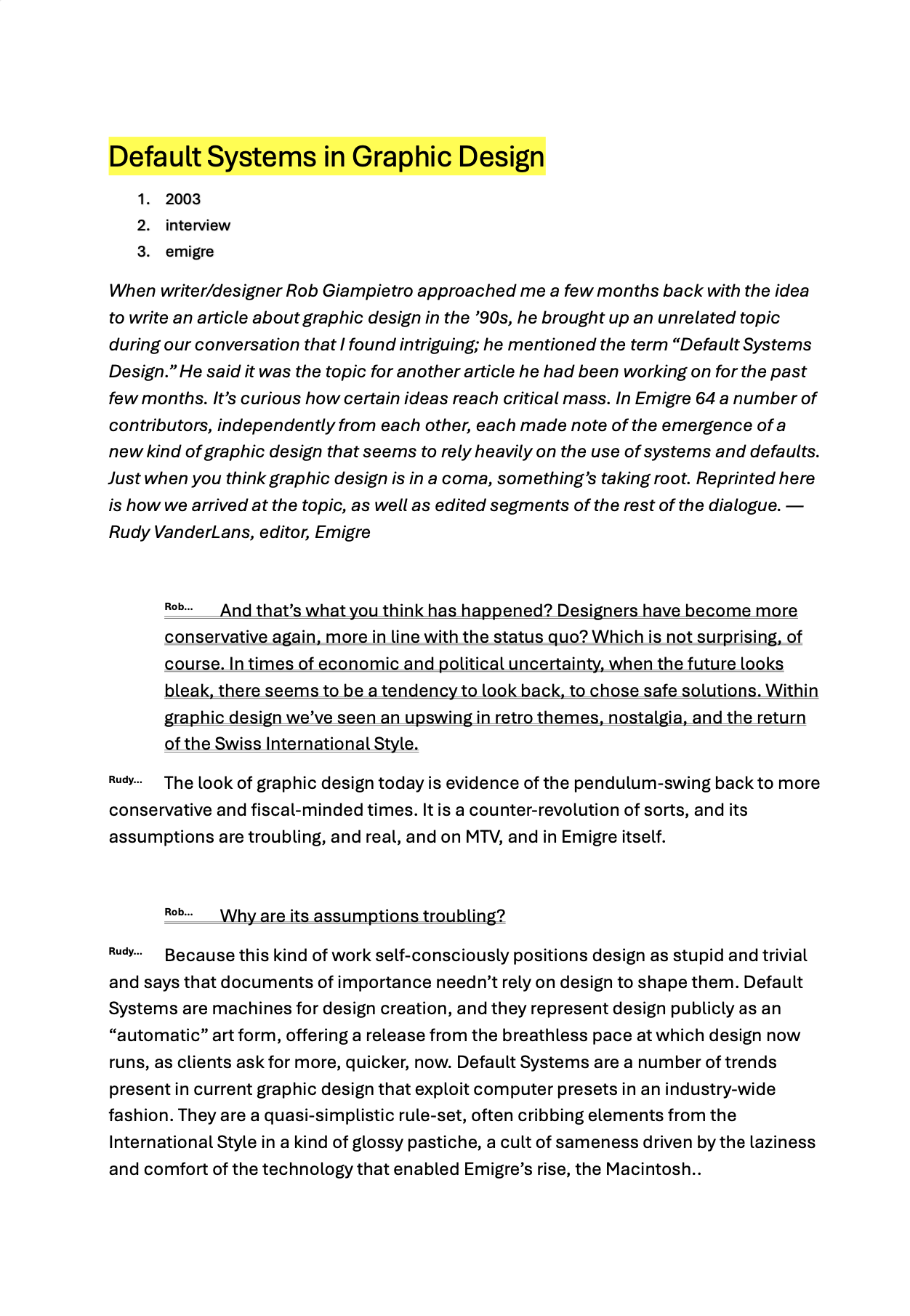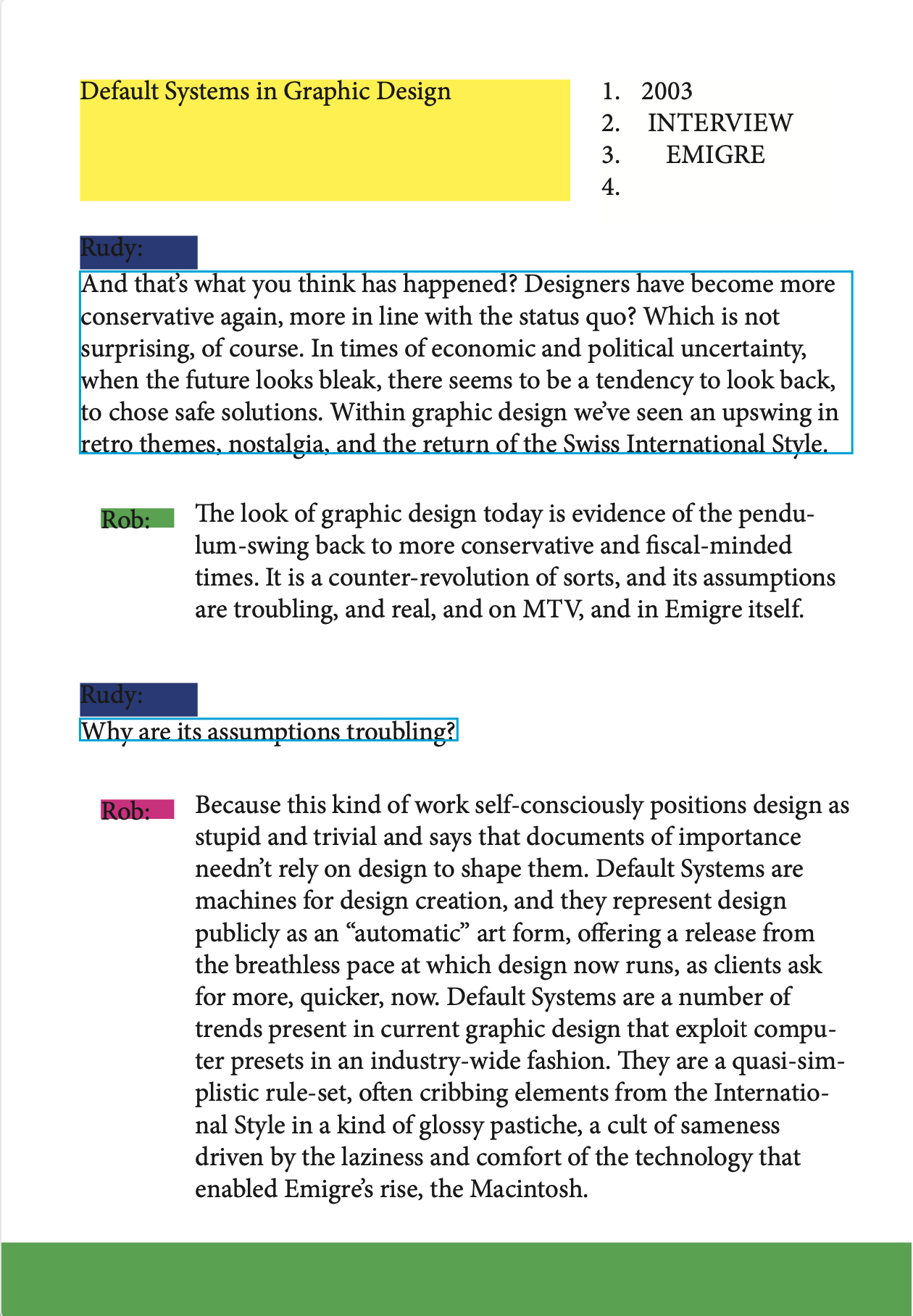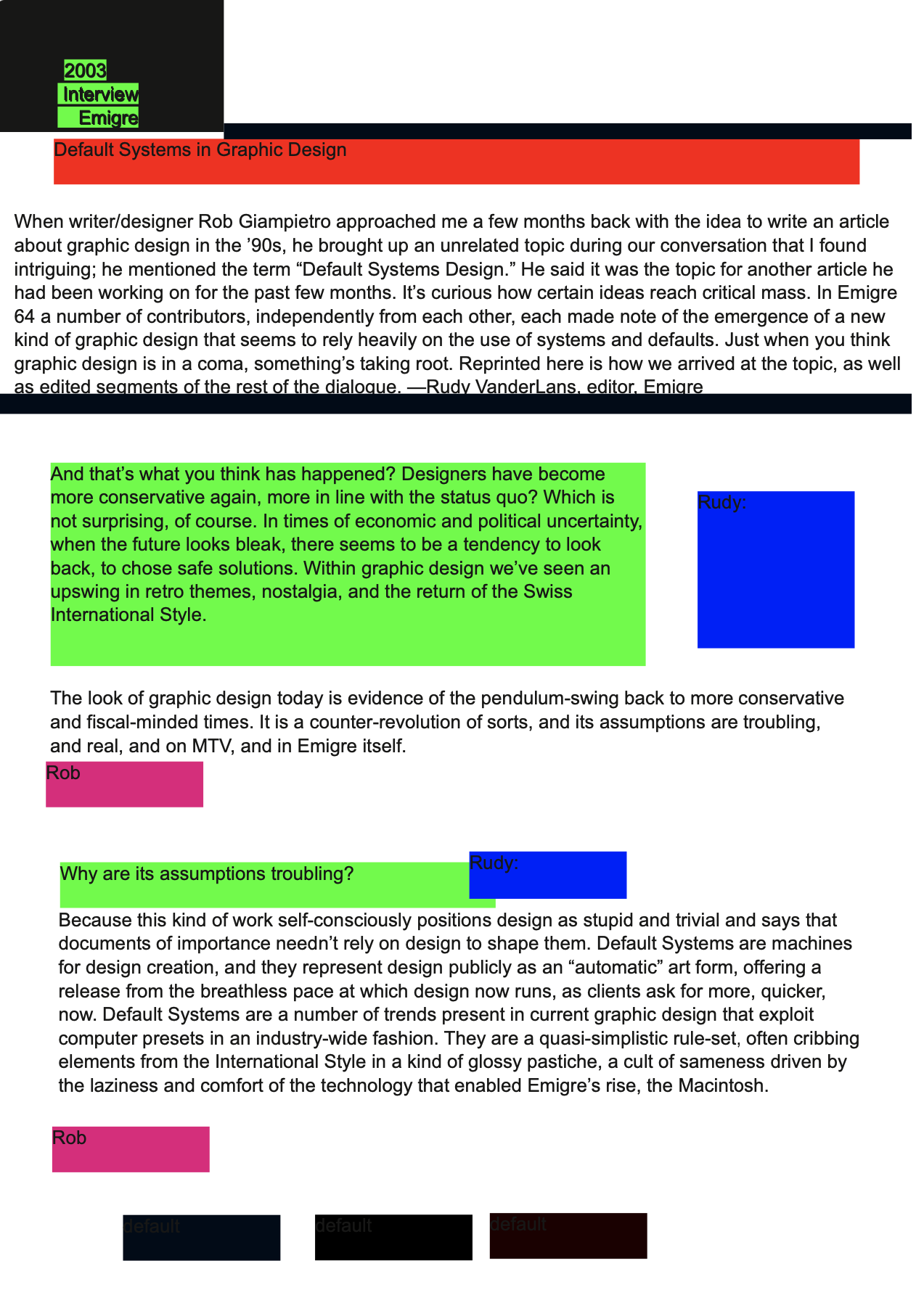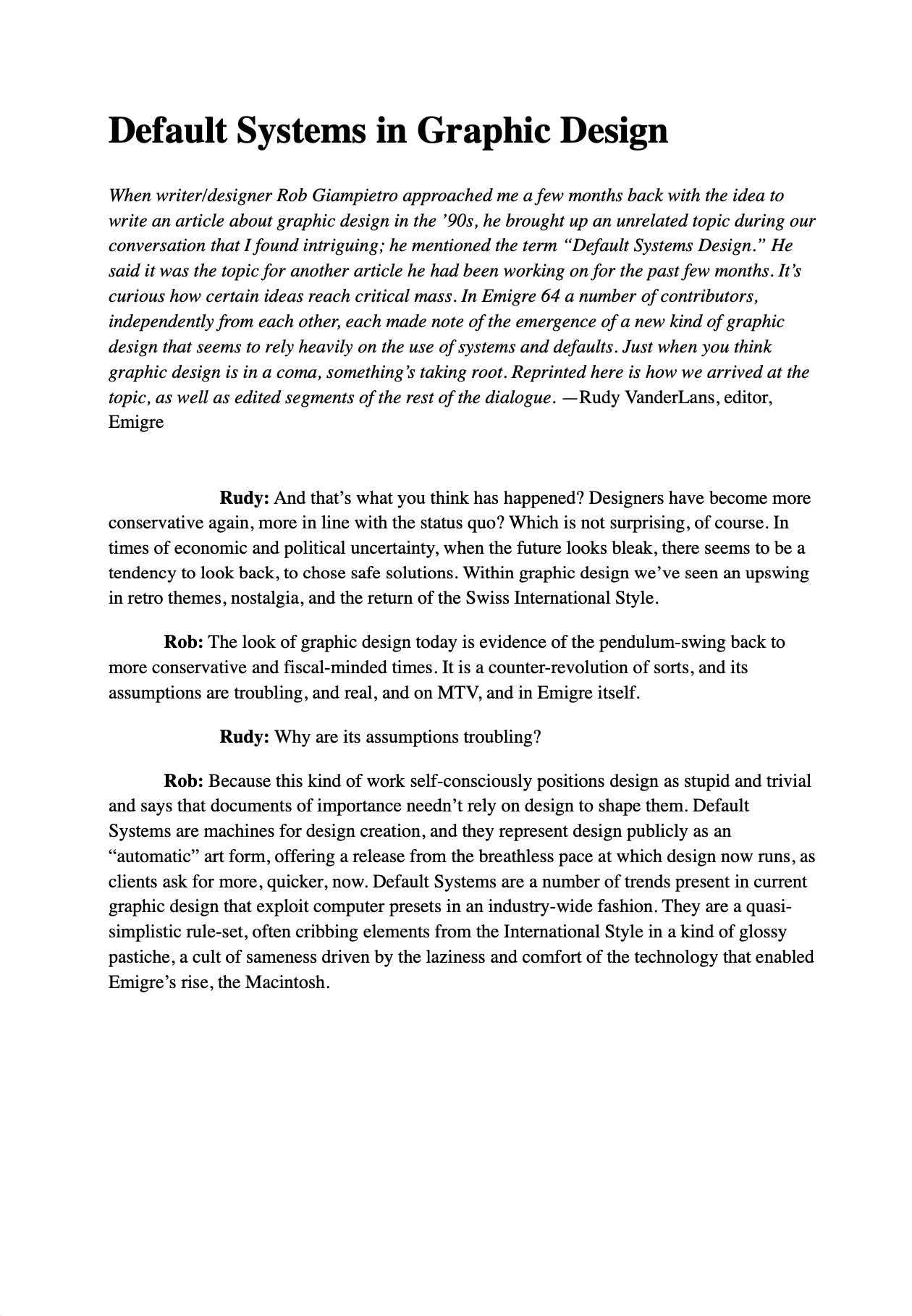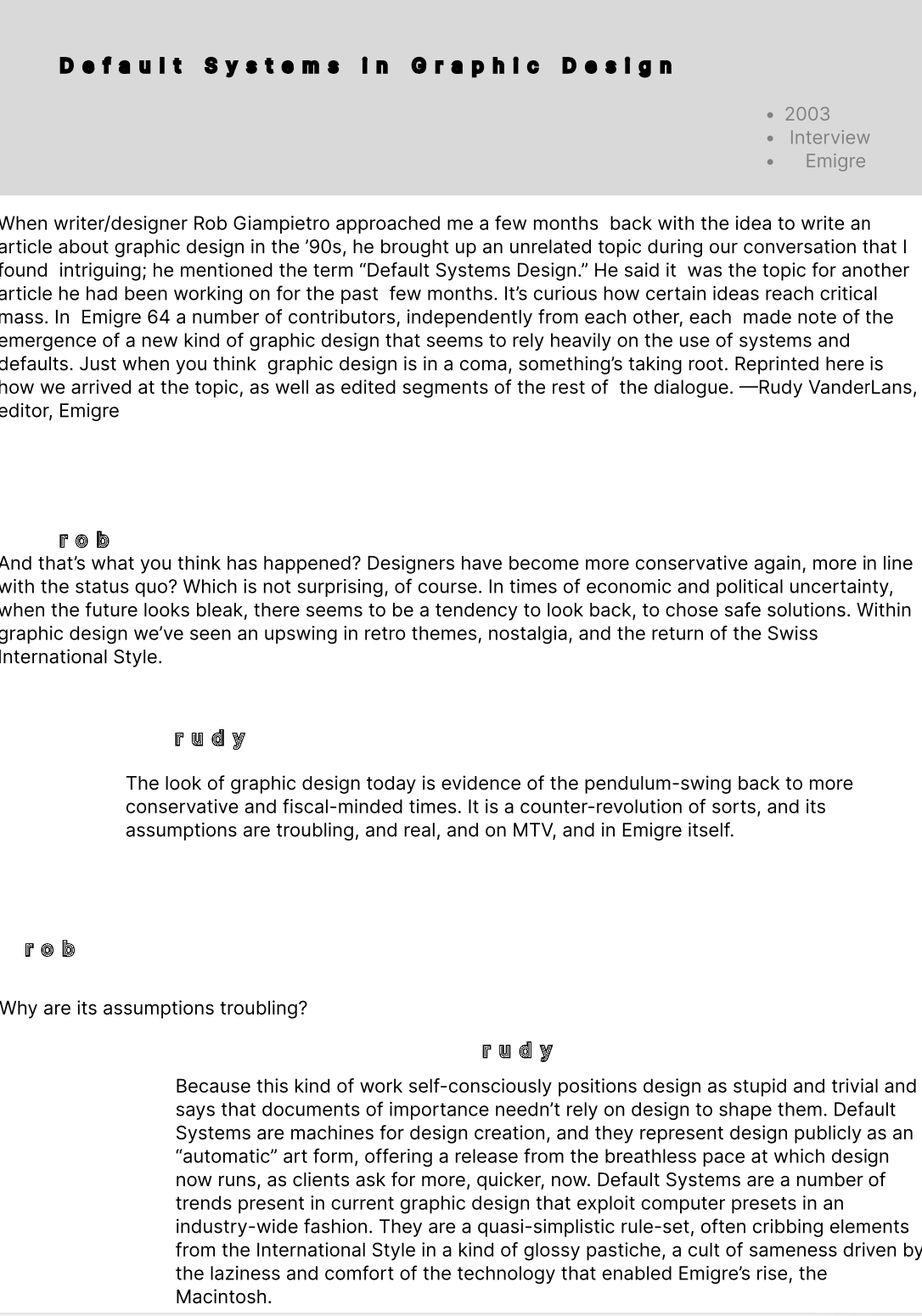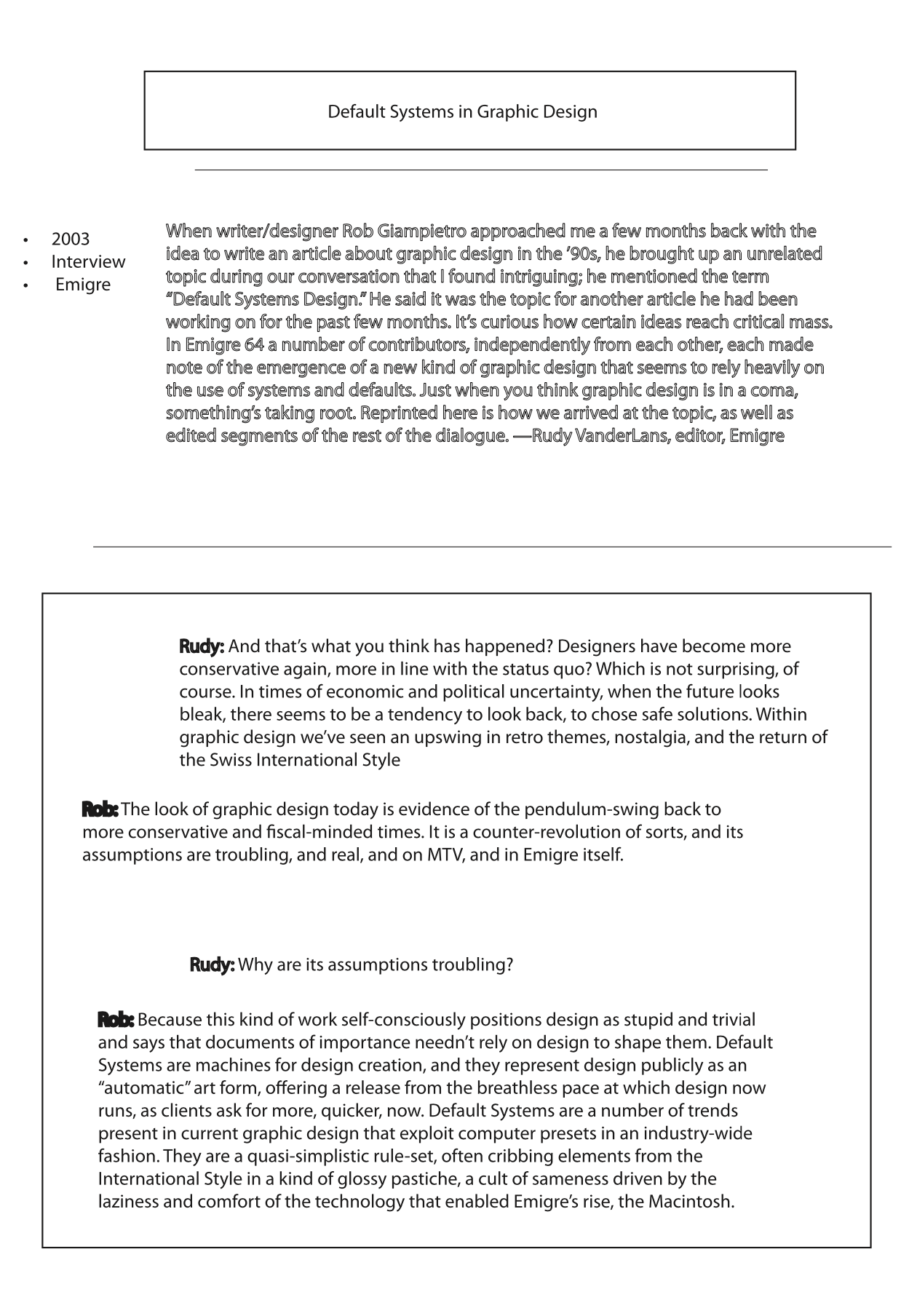I took an excerpt from an interview and laid it out
across different design programs, using only the default
settings: default typefaces, colors, grids. The idea was
simple: I wanted to test how much the software designs when
I step back as a designer, or as the “author.”
Across all Programms, I hated the process and the results. I felt like a bad designer.
It was demotivating, I didn’t want to keep working, I stopped before I was visually satisfied. This usually never happens to me.
I was completely alienated from my output.
What made it worse: even with all these constraints, I still had to make decisions—just less informed, less meaningful ones.
At first, I thought this experiment would be about my
process. But in the end, it was more about my self-image.
It raised questions:
What does it mean when I don’t design?
Who am I if the outcome is bad?
This experiment became a confrontation with my own expectations, ego, and discomfort in letting go of authorship and aesthetic control.
| Source | Text: Default Systems in Graphic Design |
|---|---|
| Tools | Word, InDesign, Scribus, TextEdit, Figma, Illustrator |
